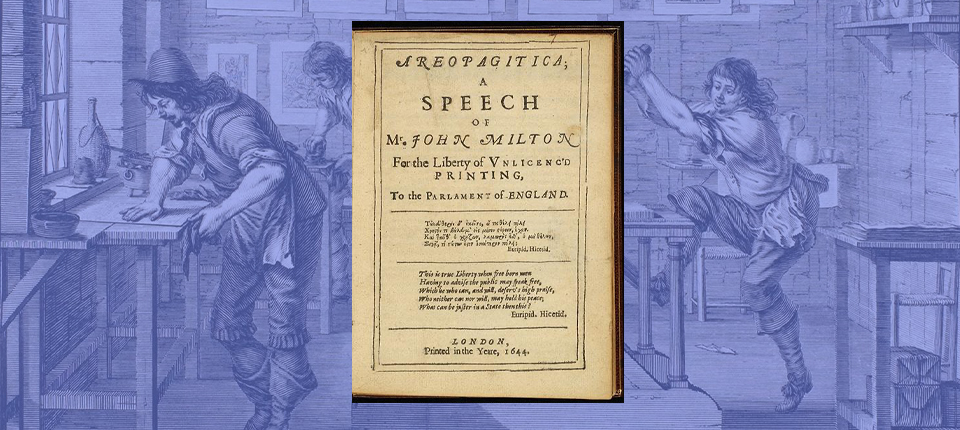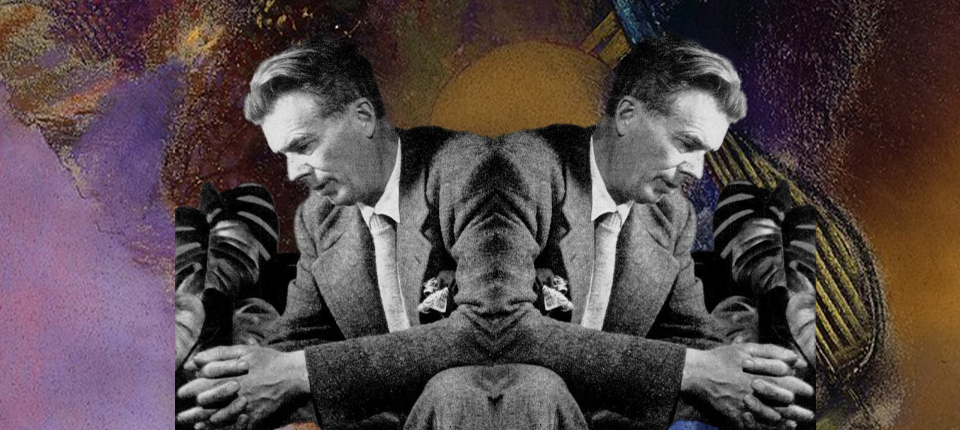Early in 1981, Tony Benn, the darling of Labour’s left wing, found himself in the same railway carriage as Keith Joseph. The latter was the intellectual mentor to Margaret Thatcher who had played an instrumental role in her rise to power. Benn talked about the “log-jam in a market economy”, while Joseph spoke of “crippled capitalism”. By Benn’s account the two men got along like a house on fire. “At least we agree on this, Keith”, he remarked, “that the last thirty-five years have been a disaster.”
This tale is recounted in Vernon Bogdanor’s highly readable book about six politicians who “made the political weather” after 1945, despite never becoming prime minister. Alongside Benn and Joseph this entertaining study profiles Aneurin Bevan, Roy Jenkins, Enoch Powell and Nigel Farage. As the anecdote suggests, these men’s frequently very different analyses and prescriptions often had significant points of overlap. Their stories also demonstrate how politicians can wield influence through means other than the formal exercise of power.
Based on lectures given at Gresham College, the chapters encourage the reader to rethink not only the personalities concerned, but also the period as a whole. There are plenty of good stories, leavened with a spot of name-dropping (“as the philosopher Isaiah Berlin once reminded me”). It is striking that the Labour figures had more concrete achievements to their names than their counterparts on the right. Bevan, of course, not only founded the NHS – which might have come into being in some form even if Churchill had stayed in power at the war’s end – but gave it his personal imprint. As home secretary in the 1960s, Jenkins initiated reforms of the prison system and presided over abortion law reform and the decriminalization of sex between men. Benn’s successful campaign to renounce the peerage he had unwillingly inherited, which Bogdanor sees as his most important practical legacy, took place before he became a minister. This was a remarkable testimony to his powers of perseverance and, perhaps, to his ambition. Had he remained in the House of Lords he could never have been a serious political player, let alone a candidate for leader of the Labour Party.
Some credit must be given to Powell for his tenure as Minister of Health under Harold Macmillan. He initiated an ambitious hospital-building programme and worked to humanize mental health provision. In view of his later attitude to immigration there were some ironies in his record. Insisting that the government need not give in to demands for pay rises, he told the cabinet: “I can bring in all the nurses we need from the West Indies”. Sacked from the opposition front bench for his notorious 1968 “Rivers of Blood” speech, Powell was flooded with letters of support from members of the public. He never held office again, but in 1975 found common cause with Benn. Both opposed British membership of the EEC in that year’s vote, and neither felt obliged to abandon the cause when the “Yes” campaign won heavily.
Joseph was as intense as Powell, though, perhaps, a little easier to like. He was an unworldly figure who constantly apologized for genuine or imagined mistakes. In 1974 he was front runner to be the next Tory leader, but blew his chances with a speech that had overtones of eugenics. Thatcher stepped into the fray and defenestrated the incumbent, Edward Heath. Joseph had already been a key influence in her conversion to a thoroughgoing brand of free- market economics, based on the rejection of the supposed failures of the postwar decades. When she entered No 10 she appointed him to her cabinet, first at industry, then at education. Bogdanor insists that Joseph was unsuccessful as a minister, a conclusion that seems a little harsh on the evidence presented (such as his failure to reform student finance, which should be counterbalanced by his role in the launch of GCSEs). But Joseph himself, ever self-deprecating, would not have disputed the judgement.
Although Farage is far from the stature of the other five, Bogdanor was right to include him in the book. In Britain many political parties are founded, but few are successful – as Jenkins learned to his cost when he split from Labour to launch the Social Democratic Party. Farage has founded three – UKIP, the Brexit Party and Reform UK – and all have had a significant impact on the electoral landscape. The author makes the critical point that UKIP’s initial success was made possible by a change in the way MEPs were elected in the UK, from 1999 onwards, from first past the post to a proportional system. This allowed the party to establish a bridgehead in the European Parliament. In 2014 Farage stated that he and his colleagues had “always taken the European elections desperately seriously because without them and without proportional representation UKIP never had a chance, frankly, of winning any elective representation in the House of Commons”. Without this switch to PR Farage might have remained a voice in the wilderness.
Kit Kowol’s study of Second World War conservatism is similarly a story of might-have-beens. His aim is to rescue the Tory party from what he regards as the condescension of posterity and the tendency for perceptions of postwar history to be influenced by the ideological preoccupations of social-democratic historians. Kowol portrays the Conservatives not as intellectually moribund, but as optimistic and brimming with original ideas. He focuses not on how the war changed Britain in a progressive direction, but rather on how far the country failed to change, with ideas of hierarchy, aristocracy and religion retaining a high degree of purchase.
One of the book’s most important acts of recovery is its attention to Conservative internationalism, manifested (in some quarters) in support for world federation and an integrated Europe. Kowol notes that global federalism was seen by its Tory proponents, such as Richard Law, as the natural further development of the British Empire and of white “Anglo-Saxon” leadership. Likewise, a united Europe was to be Christian and anti-Bolshevik. The idea of “Christendom”, a civilizational space built on the inheritance of Greece and Rome, was a crucial point of reference – as indeed it remained for Thatcher in her Eurosceptic Bruges speech in 1988.
Kowol also draws attention to scepticism about the concept of a “people’s war”, or at least the left-wing variant of that discourse. To many Conservatives “the heroes of Dunkirk were not the civilian ‘little ships’ who had come to the rescue but the Army, Navy and Air Force, and their skilled and primarily upper-class leadership”. Furthermore, such ideas were linked to positive ideas about how the war was to be won. Tanks and bombers, in particular, were seen as weapons that could be used by elite warriors to destroy enemy morale. They could help achieve victory without the changes to the structure of the armed forces that radical socialists demanded and which Tories feared might upset the structure of society.
Some Conservative thinkers, however, were prepared to contemplate drastic solutions for the postwar world, albeit in the form of a return to an imagined preindustrial past. Labelled by Kowol as “Ruralists”, this group wanted to make Britain agriculturally self-sufficient. One writer, Philip Oyler, envisaged the country’s roads planted with fruit and nut trees, under which geese would graze as children milked the goats present in every family’s garden, and alfalfa and asparagus sprouted where wheat would not grow. If such ideas sound fantastical, they showed an element of foresight, being based partly on concerns about depletion of the soil and the health impact of mass-produced foodstuffs.
In his attempt to recover conservative thinkers from historical neglect, Kowol makes some marginal figures (such as Viscount Astor and Lord Vansittart) and movements (such as Kinship in Husbandry) seem more important than they really were. He elides the complexities of religious politics and takes aim at a composite but caricatured version of the historiography, doing less than full justice to scholarship that, over many decades, has done much to challenge wartime and postwar myths. Nevertheless, the book is good fun, challenging and written with a dry wit. Provocative and ambitious, it will be a staple of future debates.
As the Conservative Party contemplates its recent defeat, Blue Jerusalem is also timely – although, as Kit Kowol suggests, there are limits to what can be learnt today from lost and alien 1940s ways of thinking. Perhaps it is most helpful to reflect on what united wartime left and right, not to overstate the extent of policy consensus, but rather to think about ultimate aims. Labour wanted to eliminate inequality, the Conservatives to preserve it. But both parties sought to bring about an improvement in the fundamental quality of human relationships. This was also true for Thatcher, for whom, as Vernon Bogdanor notes, economics were merely the method; “the object is to change the soul”. This was another point on which Joseph and Benn, in their shared first-class compartment, could have found agreement. It is hard to think of a politician today who would dare to be so bold.
Richard Toye is Professor of Modern History at the University of Exeter. His most recent book is Age of Hope: Labour, 1945, and the birth of modern Britain, 2023
The post Riders on the storm appeared first on TLS.

 By Times Literary Supplement | Created at 2024-11-20 16:49:32 | Updated at 2024-11-24 07:09:21
3 days ago
By Times Literary Supplement | Created at 2024-11-20 16:49:32 | Updated at 2024-11-24 07:09:21
3 days ago








